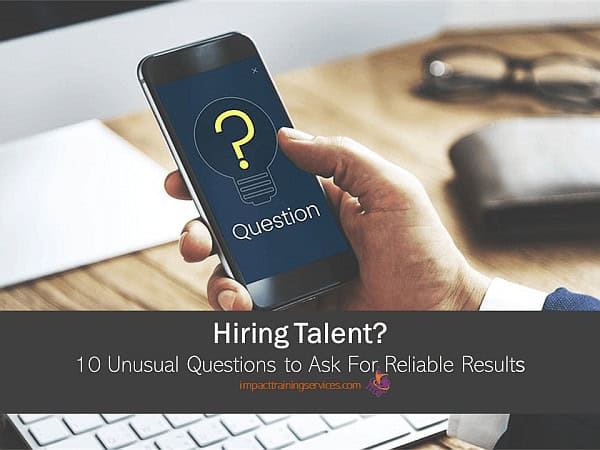
Non-paying Clients? 7 Easy Ways You Can Fix That!
- Home
- Non-paying Clients? 7 Easy Ways You Can Fix That!

They’re out there…Non-paying clients or customers.
And it seems like they’re just waiting to prey on small business owners and entrepreneurs like you.
Increasingly, this is one of the biggest problems I am meeting as I work with my clients to help them to turnaround their businesses. And these “customonsters” come in all shapes and sizes, forms and fashions.
I feel their frustration and I hear the stress in their voices, when they ask me: Lorna, what do I do when the client won’t pay? Or what do I do about non-paying clients?
If it’s any comfort to you, it used to happen to me too…So what I’m sharing with you, is what I learnt to fix the problem for myself.
But before I get to the strategies, let’s look at 2 important issues.
Categories of non-paying clients
It is a good to examine your categories of non-paying clients.
Usually, your non-paying clients fall into 3 categories:
- Category #1 has those clients with no money at the time the payment is due
2. In category #2 are those who are “not happy” with your work
3. In his category, are those who want to spend “your money” on something else
Those with no money will eventually pay you. They are basically honest people who might have fallen on hard times. The answer is to be understanding and kind to them and work with them on a solution.
Those who’re “not happy” with your work spell trouble. You need to get as much information about their dissatisfaction as you can. You should accept responsibility for any problems and offer a fix, whether you agree with them or not. This is necessary because they have the potential to damage your reputation.
Those who want to spend “your money” on something else are even more bad news. Sorry to have to break the news to you, but they seldom intended to pay in the first place.
Who is to blame for your non-paying clients?
Then there’s the issue of who is to blame when customers or clients don’t pay.
What if I were to tell you that you are to blame when people don’t pay you?
Now that you’re done cussing me, let me break it down for you.
Some of you are very uncomfortable about dealing with money in any form.
You’re afraid to ask for what your work is worth.
You’re uncomfortable negotiating with your bank for a loan, a waiver on fees, or anything.
Even asking a friend to repay a loan is a problem for some of you.
So asking clients to pay up is just out of your league.
Then there’s a group of you called artists. I find your difficulty with money especially fascinating.
As an “artist” you are completely focused on creating or delivering on your craft. And you’re good at it too. But dealing with money is not something you do well, if at all. So what’s your situation?
You have no good idea who owes you and just to be fair, you are not sure who you owe either. And on top of that, you are uncomfortable (or can’t afford) outsourcing this part of your work.
As a small businessperson, when you can’t ask for your money, when you can’t be strong and assertive in any situation, you are playing fast and loose with your business.
More importantly, you send a strong message to your clients that they can pay you when they feel like.
So, how then can you be upset when they take you seriously?
Strategies for addressing non-paying clients
Now here are some strategies you can use to address your problems with clients who don’t pay, especially for categories #1 and #2.
1. Make your payment policy simple and clear from the outset
To start with, you must have a payment policy. Then it has to be clear to you so that you can make it clear to your clients.
This is very important. Far too often, when I ask my clients “what does this mean?” referring to something is their payment policy, they admit that they don’t know or can’t remember.
Such a policy should include:
- Actual due dates. For example, May 12, 2027. Not “2 weeks from the last Friday in the relevant months!”
2. What constitutes late payment (and how it will be addressed)
3. Cancellation policy (when and how you will cancel a contract and allow the client to cancel)
4. Refund policy (keep this tight)
5. Non-payment clause. Not the same as late payment. This is intended to stop clients from using your intellectual property (IP) when they don’t pay
6. How you will communicate re outstanding amounts. This helps to prevent clients from claiming that an email is not valid notice of outstanding amount, for example
7. Completion criteria. This lets the client know exactly what constitutes “finished work”
8. Any other policies specific to your business
Once you have your policy in place, be sure to place it in every contract.
And be willing to enforce whatever you promised when the debt is not paid, unless the client is faced with unexpected disaster. Remember, you are a small business and you cannot carry a large amount of debt.
2. Choose your customers or clients
You do have criteria that a client must meet before you work with them…don’t you?
Not choosing your clients is not only a clear sign of business incompetence, it also shows you do not have a definite set of business values.
You should never so desperate as to have to accept a client or customer who does not meet your selection criteria. Even if they meet the criteria and your gut says “no!”, run away.
This takes a lot of confidence, especially when your bank balance screams “yes!” But you might be glad you did in the long run.
3. Do your due diligence to avoid non-paying clients
There are 2 things I notice that small business people are extremely secretive about, especially in my neck of the wood.
- Who they clients are and
- how much they are paying.
I hate to tell you that when your clients are not paying as agreed, this behaviour is not helpful. It can often end you up in the same place as a woman (or man) who refuses to do even a little background check on a new love interest, only to regret it after the sex.
So do your due diligence in advance, especially if large sums are involved.
Ask potential clients for bank letters and other references from existing clients. Check them out among your own colleagues.
It is better to learn that a potential client should remain just that than to give them a chance to become a non-paying client!
4. Get comfortable asking non-paying clients to pay up
This should be part of your overall strategy for getting comfortable talking money. And large sums too!
You should be comfortable just mentioning large sums of money in casual conversations. Or engaging in financial negotiations. And yes…asking a client to pay the money he or she owes.
If you take the advice in #1 above, requesting a payment will be so much easier. I will go further and say get a mentor to help you, if you think your problem is really bad.
The one thing you don’t want to do though, is play “collection games” when asking a client to pay what they owe.
Chances are, you entered the contract by yourself so don’t be telling the client that “their debt has been passed to the collections department.” Chewpse!
They will know if such a department exists and if it does, they will also know that it was set up because so many of your clients do not pay.
5. You can require 100% of your payment in advance
This seems to be more viable when you have established a reputation in your niche or market or you have differentiated yourself in your space.
Honest clients won’t have a problem with this but it depends on the size of the contract and how clearly you spell out what they are getting for their money.
I am NOT about to pay anyone $100,000 as full payment in advance, and neither will I expect that from anyone.
6. Learn how to offer a discount to encourage early payment
Every time I say this, there is a small business owner waiting around a corner to tell me why this does not work.
Here’s how YOU do it:
Let’s say you are in the process of getting a $60,000 contract. To encourage early payment, you offer a 5% discount. No problem. So you reduce the contract by $3,000 and spread the payments out evenly over the life of the contract.
Here’s how WE do it:
In some of our businesses and in some cases, we do offer discounts for early payment. However, staying with the example above, what we do is to take the full discount off the FINAL payment only.
In this way, the client gets no benefit from a discount, until they have paid in full AND in the agreed time.
Trust me…it works nearly every time.
7. Open a “B & B” list for non-paying clients
No…that‘s not Barrow and Blades as in me and my colleague teaming up to deliver great training.
It’s a Block and Ban List. You just have to accept that there are dishonest people out there and protect you and your business against them.
Please remember, this should be part of your internal decision-making and money management policies.
Therefore, you do not go around gossiping about the person(s) on that list, however horrible they are. Doing so will only establish you as unprofessional.
Your next “non-paying clients” steps…
So there you have them…7 practical strategies you can apply when you have non-paying clients. Even as I share them, I really hope this is not your problem.
But did you notice anything similar about most of them?
No? Well, 6 of them require you to change some of your behaviour or approaches to collecting your outstanding debts. Only the last one is directly applicable to the client.
Think about that. It’s another example that when you take responsibility for a problem, you can fix it.
So if you have a non-paying client, try strategies 1 – 6 and you might find that you don’t even have to use #7 after all.
To your collecting success…
Video of The Week:
Are you still wondering about starting a new business in 2024? You’re not too late!
In this week’s video, in just about 3.5 minutes, The Young Entrepreneur Forum shares the top 10 trending business ideas in 2024. I could start a business with idea #5…
Watch the video and then check out some great advice on raising money if you want to do so to start that business! Enjoy!
Meet Lorna Barrow

When it comes to helping you grow your small business, develop yourself & your team, Lorna’s got your back!
Follow her on twitter @LornaBarrrow
Join her Facebook Page: Impact Training
Email her at: Lorna@impacttrainingservices.com




